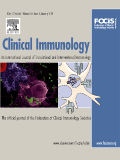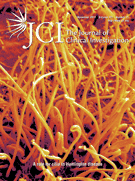 Sometimes we run across retraction notices that are vague, and others that are contorted, but we’ve just found one that gets highest marks for being completely inscrutable.
Sometimes we run across retraction notices that are vague, and others that are contorted, but we’ve just found one that gets highest marks for being completely inscrutable.
The article, “Bayes Clustering and Structural Support Vector Machines for Segmentation of Carotid Artery Plaques in Multicontrast MRI,” was written by a group from China and Cambridge University in England — so, we’re thinking language ought not to have been much of a barrier to clear English. It appeared in November 2012 in Computational and Mathematical Methods in Medicine, and describes a way to analyze carotid artery plaque levels in MRI images.
But according to the notice, the technique did not work as planned (or so we think):








